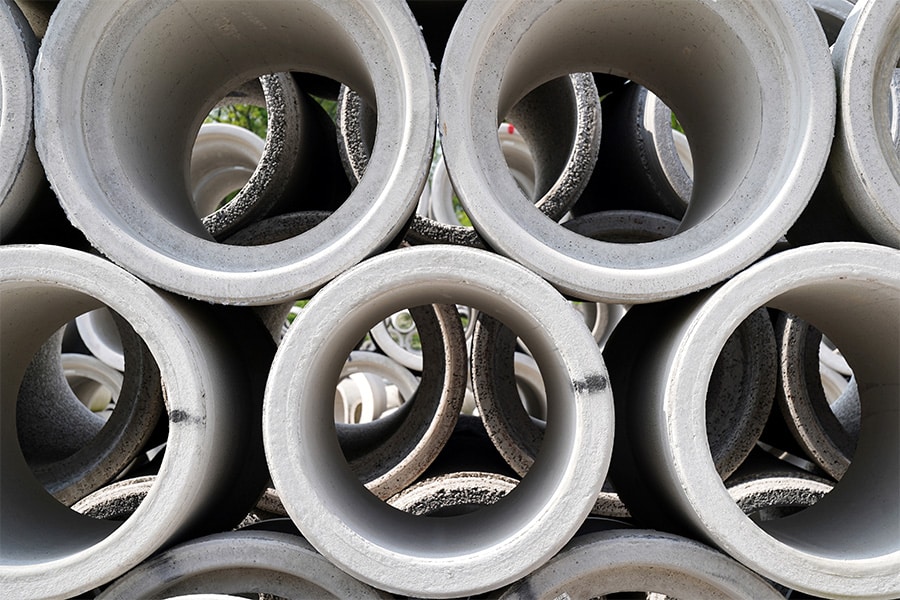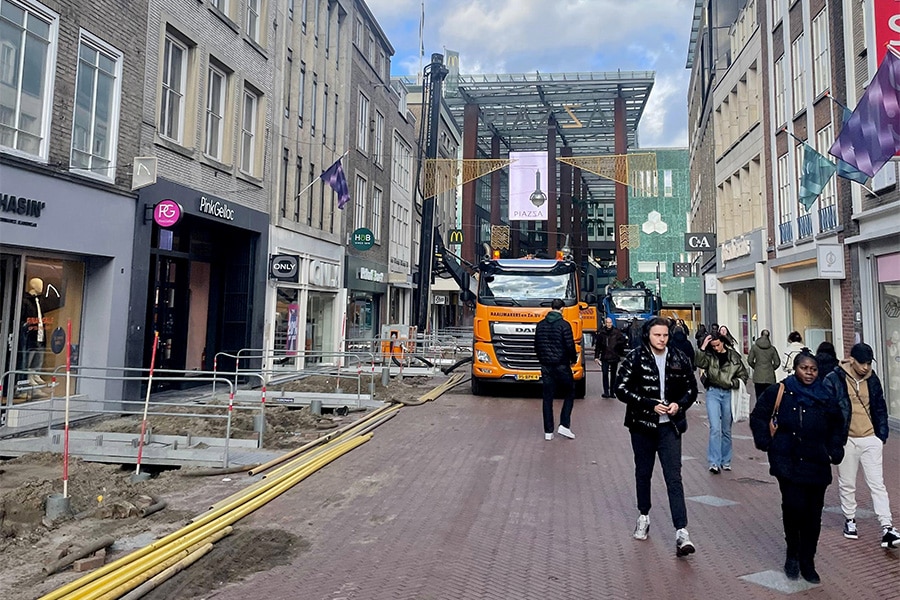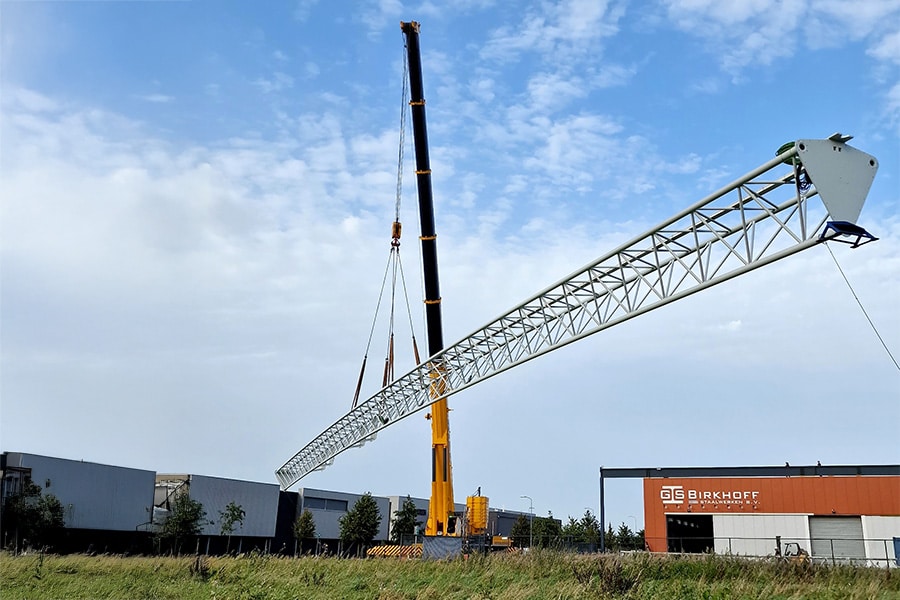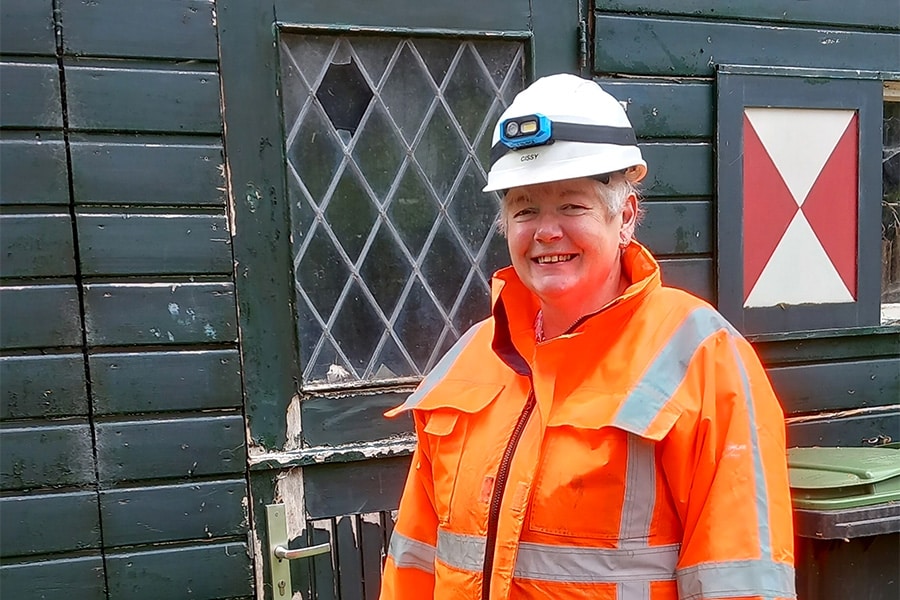
The Netherlands is the birthplace of CSC certification
CSC certification expands across Europe and the rest of the world
"The hallmark CSC guarantees the sustainable production of concrete. Hallmark holders may only carry CSC if they meet strict requirements with regard to reliability, expertise, sustainability and occupational safety. "The speaker is Wilfred Oosterling, construction technology consultant at Betonhuis. "Initially, most CSC certificates were issued in the Netherlands. Meanwhile, CSC is expanding across Europe and the rest of the world. First only for concrete mortar companies, now broadly across the entire concrete industry, including many precast concrete producers." CSC looks not only at the manufacturer itself, but also at its raw material suppliers. "So the CSC score can get higher the more certified parties you work with," Oosterling outlines.

CSC-certified sand and gravel
Oosterling notes that sand and gravel from land reclamation could be CSC-certified, but from sea reclamation not yet. "That while sand and gravel from sea is typically Dutch. For us the reason to knock on CSC's door to change this. The response from CSC was: Betonhuis, fine, arrange that. In cooperation with a number of companies and the University of Wageningen (Faculty of Marine Research), we started research and eventually managed to get sand and gravel from the sea certified. This proves once again that CSC is in full development; the requirements are also being tightened all the time. In addition to the CSC Bronze, Silver and Gold certificates, there is now also a CSC Platinum certificate to be obtained. One of our members, De Goudse Betoncentrale, now also has the R-module (for recycled concrete). This is now being applied by other companies as well. The latest module is the CO2module, with a four-stage "star rating. Participating in the R and CO2-module can if you have achieved CSC silver." In the Netherlands, a baseline is established for CO2, which are tested against. "The number of stars obtained shows how much better you are performing relative to this baseline," he said.
By 2030, 100% of concrete should go back into the chain
The Betonakkoord mentions that in the Netherlands, by 2030, concrete for 100% should go back into the chain. "We see around us that this is already being worked hard on, it should be achievable. Not only as concrete granulate but also complete elements are already being reused today ", Oosterling said. "That's why it's so important to go for your CSC certification as a concrete producer. Those who want to test the feasibility of obtaining CSC certification I recommend doing the CSC Quick Scan, the link can be found on the Betonhuis site. We are the official 'Regional Systems Operator' for CSC certification. With us you can get advice and we help companies further, however, the tests are performed by independent parties, such as there are KIWA, SGS and SKG-IKOB. Those who go for CSC certification are building a solid future. Is there a BREEAM requirement in a tender, for example? Then simply show your CSC certificate and you will have automatically proven that you meet the BREEAM requirements. It is expected that CSC-certified concrete will become a regular feature in invitations to tender."
These companies preceded you in achieving CSC certification
We speak with Gouda Concrete Mortar Central. "Our motivation for becoming CSC-certified is generally the green thinking that we are pursuing as a company, the reduction of CO2-emissions and the fact that we are helping our customers further with this. There was also an increasing demand for sustainable concrete. Therefore, we make a good cubic meter of concrete with the lowest possible environmental impact. We focus on the secondary materials, which go back into the stream. We bring concrete rubble from demolition back into the chain responsibly. We also think about everything logistically; we try to cause as few transport movements as possible. And if we drive, then preferably hybrid or electric. We ask our suppliers to be green, especially when it comes to sand, gravel and cement." When asked if it took much effort to become CSC-certified, the answer is, "We already had the basis for working green well in place. To become CSC-certified, we mainly had to demonstrate that and get audited. The numbers just have to be right. Validation is important. We do have to look to the future now, because we may well face a scarcity of raw materials that come from nearby. Raw materials like slag from fly ash and sand and gravel."
Schellevis is also CSC-certified and produces ornamental paving and concrete elements. Meike Hover of Schellevis: "We were certified in April this year. We already had a Green Label for several years and are now one of the first concrete tile manufacturers with the CSC seal of approval. The reason we wanted this is because CSC measures several things in different areas. For example, it properly identifies where raw materials come from and whether production is sustainable. We like to know for ourselves whether we are doing well in terms of sustainability and want to guarantee sustainability to our customers. Literally doing our part to act responsibly with nature. We are on the right track, from supplier to the machines we use. For example, the production lines have been developed together with the supplier in such a way that they are sustainable in use. In addition, we air-dry our concrete products. CSC certification is a confirmation for us that we are on the right track, from the purchase of raw materials to the delivery of finished products. Also nice: CSC gives us all the tools to further optimize. We were already working sustainably, but CSC is a perfect test for sustainable entrepreneurship. The certificate obtained is not only valuable for us in the Netherlands, but certainly also abroad."
Three branches of Dycore CSC silver certified
Dycore's three sites in Breda, Lelystad and Oosterhout have obtained the CSC silver certificate for precast concrete. On behalf of SGS, Jeroen Pos, auditor of SGS Intron presented the certificates to a delegation of Engineering: Gerwin Korpershoek, Philip van den Elshout, Daniel Lowitzky, Willem Snijders and Hans van Steen. This happened on June 14 during the Concrete Event. Dycore has a high score when it comes to the supply chain, all materials used are largely purchased from CSC-certified companies. By obtaining the CSC certificate, Dycore can officially demonstrate that the raw materials used come from traceable and responsible sources. The certificate therefore serves as a sustainability hallmark for all Dycore products: wide plate, ribbed plate, hollow plate and pipe plate floors. Oosterling: "As one of the leading organizations within the precast sector, Dycore sees it as its responsibility to provide sustainable solutions. With CSC, the company can make a substantial contribution to their clients' sustainability goals." In addition to attention to the origin of raw materials, compliance with legislation (including human rights and working conditions) and care for a safe working environment is an important element within the certificate. The various management systems and the "16 life-saving rules" used by Dycore are the main pillars in this within Dycore. "Here, too, Dycore scored high. CSC provides assurance for parties who want to build sustainably on the basis of, for example, BREEAM-NL certification," Oosterling concludes.



